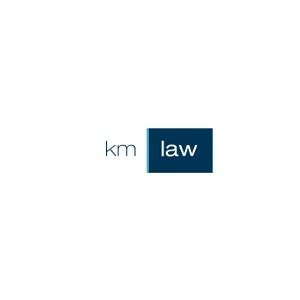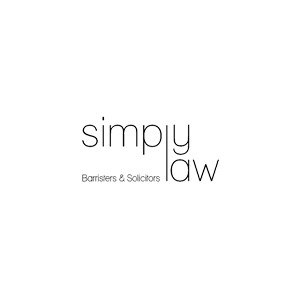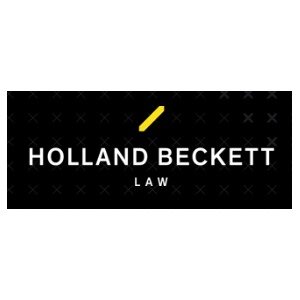Best Real Estate Lawyers in Tauranga
Share your needs with us, get contacted by law firms.
Free. Takes 2 min.
Free Guide to Hiring a Real Estate Lawyer
List of the best lawyers in Tauranga, New Zealand
About Real Estate Law in Tauranga, New Zealand
Tauranga, a vibrant city located in the Bay of Plenty region, is one of New Zealand’s fastest-growing areas. Known for its beautiful beaches and thriving economy, real estate in Tauranga has become increasingly appealing. As a bustling real estate hub, Tauranga experiences a dynamic property market, encompassing residential, commercial, and rural properties. Real estate law in Tauranga involves regulations governing property transactions, leasing, property development, and zoning, among other aspects.
Why You May Need a Lawyer
Navigating the complexities of real estate law can be daunting, and legal assistance is often necessary to ensure compliance and protect your interests. Here are some common situations where a lawyer may be required:
- Buying or selling a property: Ensuring that contracts are legally sound and all terms are properly negotiated.
- Property disputes: Resolving issues related to boundaries, easements, or neighbor disputes.
- Commercial leases: Reviewing and negotiating lease terms to safeguard business interests.
- Development projects: Navigating zoning laws, consent processes, and dealing with local councils.
- Inheritance and estate planning: Managing legalities around transferring property ownership.
- Mortgage issues: Addressing issues related to financing, refinancing, or mortgage default.
Local Laws Overview
Real estate transactions in Tauranga are governed by both national and local laws. Here are key aspects particularly relevant to Tauranga:
- Zoning and Land Use: Tauranga City Council has zoning regulations that determine land use in residential, commercial, and rural zones. Understanding these regulations is crucial for development and property use.
- Resource Management Act (RMA): This legislation governs land use and environmental considerations. Projects may require resource consents to ensure that development complies with environmental standards.
- Building Codes: Compliance with the Building Act and associated codes ensures safe and legal construction practices.
- Overseas Investment Rules: Non-residents looking to invest in New Zealand real estate must comply with the Overseas Investment Act, which can require specific approvals.
Frequently Asked Questions
What is the process of buying a house in Tauranga?
The purchasing process involves several steps, including making an offer, obtaining a LIM report, conducting a building inspection, securing financing, and finalizing the purchase with a lawyer.
Do I need a lawyer to sell my property?
While not a legal requirement, hiring a lawyer is advisable to ensure that sale agreements are properly structured and all legal obligations are met.
What are the costs involved in buying a property?
Costs include the purchase price, legal fees, LIM reports, building inspection fees, and potentially a mortgage broker’s fee.
How can I resolve a dispute with a neighbor over property boundaries?
Consulting with a lawyer is recommended. Mediation or legal proceedings may be necessary, depending on the situation’s complexity.
What is a LIM report, and why is it important?
A Land Information Memorandum (LIM) provides crucial data about a property, including zoning, permits, and any council notifications, helping buyers make informed decisions.
Can I build an extension on my house?
Whether an extension is possible depends on zoning laws, property size, and council permissions. Consulting with a lawyer or planning expert for guidance is recommended.
What steps should I take for a successful commercial lease negotiation?
Before signing a commercial lease, understand lease terms, negotiate conditions to suit your business needs, and seek legal advice to protect your interests.
Are there any property investment restrictions for foreigners?
Yes, the Overseas Investment Act places certain restrictions and requirements on foreign investors purchasing property in New Zealand, including residential land.
How do I transfer property ownership after a relative's death?
Consult a lawyer to help navigate probate processes and ensure legal transfer of property title according to the deceased's will or the intestacy rules.
What is the role of a conveyancer in property transactions?
Conveyancers manage the legal aspects of property transactions, including contract preparation, title searches, and ensuring a smooth property transfer process.
Additional Resources
For further assistance, consider these resources:
- Tauranga City Council: For zoning and building regulations.
- Real Estate Authority (REA): Provides oversight and guidance on real estate practices.
- Property Law Section of the New Zealand Law Society: Offers information on real estate laws and can help find accredited property lawyers.
- Tenancy Services: Provides guidance on rental laws and dispute resolutions for tenants and landlords.
Next Steps
If you need legal assistance, consider the following steps:
- Identify your legal needs: Understand the specific areas you need assistance with, whether buying, selling, leasing, or dealing with a dispute.
- Research qualified lawyers: Look for experienced property lawyers familiar with Tauranga’s legal landscape.
- Schedule consultations: Meet with potential legal advisors to discuss your case and determine a suitable fit for your needs.
- Prepare documentation: Gather any necessary documents related to your property matters to streamline the legal process.
- Engage your chosen lawyer: Enter into a formal agreement with your lawyer to begin receiving legal services.
Lawzana helps you find the best lawyers and law firms in Tauranga through a curated and pre-screened list of qualified legal professionals. Our platform offers rankings and detailed profiles of attorneys and law firms, allowing you to compare based on practice areas, including Real Estate, experience, and client feedback.
Each profile includes a description of the firm's areas of practice, client reviews, team members and partners, year of establishment, spoken languages, office locations, contact information, social media presence, and any published articles or resources. Most firms on our platform speak English and are experienced in both local and international legal matters.
Get a quote from top-rated law firms in Tauranga, New Zealand — quickly, securely, and without unnecessary hassle.
Disclaimer:
The information provided on this page is for general informational purposes only and does not constitute legal advice. While we strive to ensure the accuracy and relevance of the content, legal information may change over time, and interpretations of the law can vary. You should always consult with a qualified legal professional for advice specific to your situation.
We disclaim all liability for actions taken or not taken based on the content of this page. If you believe any information is incorrect or outdated, please contact us, and we will review and update it where appropriate.
Browse real estate law firms by service in Tauranga, New Zealand
Tauranga, New Zealand Attorneys in related practice areas.

















